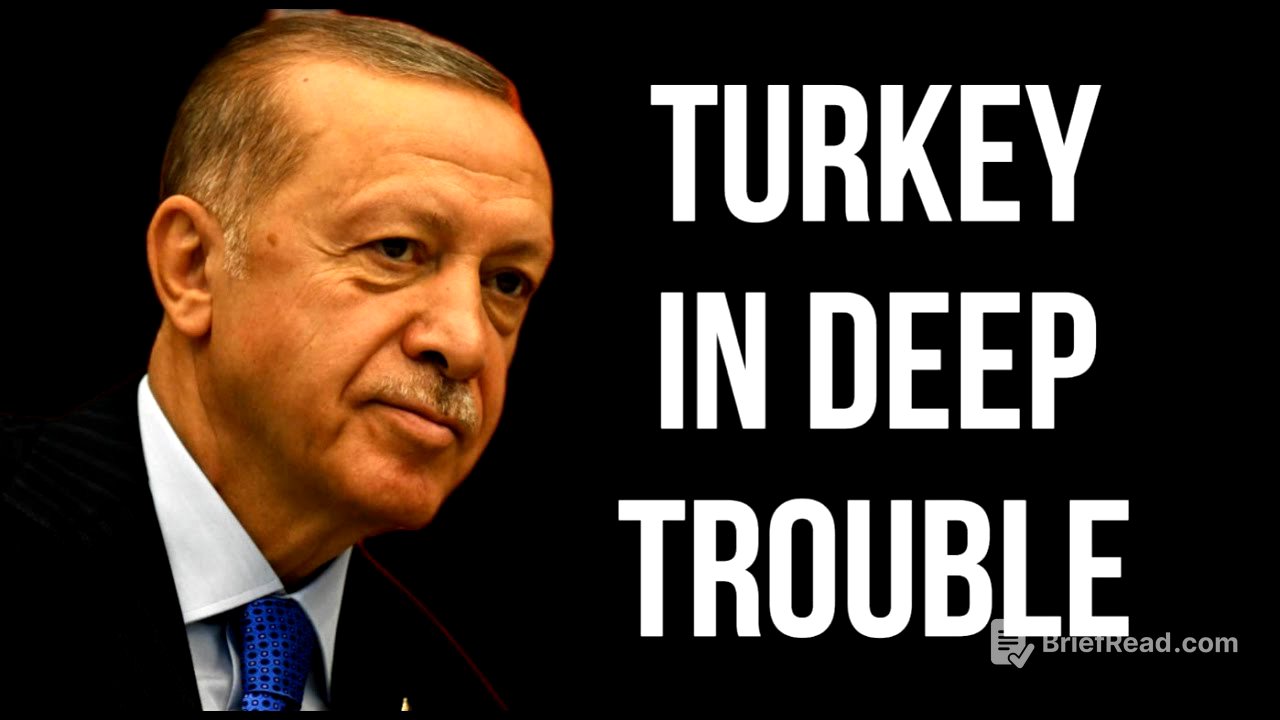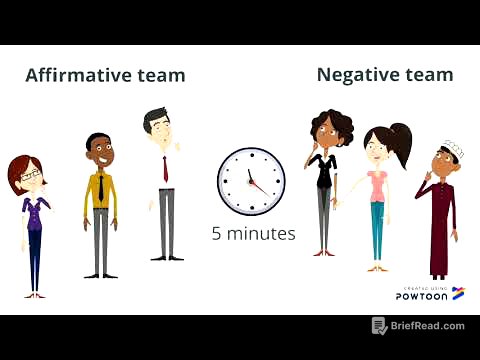TLDR;
This video provides an update on the economic situation in Turkey, focusing on inflation, interest rates, food inflation, the value of the Lira, and producer prices. While there are some positive signs, such as decreasing inflation rates and producer prices, the overall levels remain high and pose significant challenges for the Turkish economy.
- Inflation and food price increases are slowing but remain high.
- Interest rates are very high, second only to Venezuela.
- The value of the Lira continues to decline, leading to dollarization.
Intro [0:00]
The video introduces a discussion about the current economic situation in Turkey, referred to as Turia within the country. The primary focus is on the persistent issue of inflation and its impact on the Turkish economy.
INFLATION [0:09]
Inflation in Turkey has decreased over the past year, with the latest data showing a rate of 35% in May 2025, a significant drop from over 75% the previous year. Despite this improvement, 35% inflation remains extremely high compared to most Western countries, where even 5% to 10% is considered alarming. Among the G20 countries, only Argentina has a higher inflation rate at 43.5%, while most others have rates below 5%. Turkey's inflation rate places it among the top 10 highest in the world, highlighting the ongoing economic challenges it faces.
INTEREST RATES [4:04]
To combat high inflation, Turkey's central bank has been increasing interest rates, which peaked at 50% in 2024. In April, despite previous reductions, the rate was raised again to 46%. Such high interest rates discourage borrowing and investment, potentially hindering economic growth. Turkey's interest rate is the highest in the G20, surpassing even Argentina, which has a higher inflation rate. Globally, only Venezuela has a higher interest rate.
FOOD INFLATION [9:01]
Food inflation in Turkey, a critical indicator of the economic impact on the poor, was at 33% in May 2025, down from 70% the previous year. This still means that people need a 33% increase in disposable income to afford the same amount of food. Among the G20 countries, only Argentina has a higher food inflation rate. Globally, Turkey ranks among the top 10 countries for food inflation, with only Zimbabwe and South Sudan having rates above 100%.
LIRA [10:49]
The value of the Turkish Lira has significantly deteriorated, with the exchange rate against the US dollar declining from around 33 Lira per dollar last year to about 40 Lira per dollar currently. Over the past five years, the Lira has collapsed from 4 Lira per dollar to 40 Lira per dollar. This decline has led people to prefer holding savings in more stable currencies like the Euro, Dollar, or Chinese Yuan, making it difficult for the central bank to manage the currency and economy effectively.
PRODUCER PRICES [12:36]
Producer prices in Turkey have increased by 23% year-on-year as of May 2025, a decrease from over 50% the previous year. Despite this improvement, Turkey has the highest increase in producer prices among the G20 countries. High producer prices negatively impact the competitiveness, trade, revenue, and profitability of Turkish companies. While the depreciation of the Lira could offset this, most international deals are conducted in other currencies, diminishing this effect.
SUMMARY & CONCLUSION [15:25]
In summary, Turkey is showing some positive economic trends, such as decreasing inflation and producer prices. However, these improvements are not occurring rapidly enough, and the actual levels remain high. Turkey faces major challenges due to its high inflation, rising producer prices, and high interest rates, which are causing the value of the Lira to fall and leading to dollarization. To improve its economic situation, Turkey needs to increase its GDP and earnings to afford essential imports, but high prices are hindering its ability to win contracts and compete with other countries.









